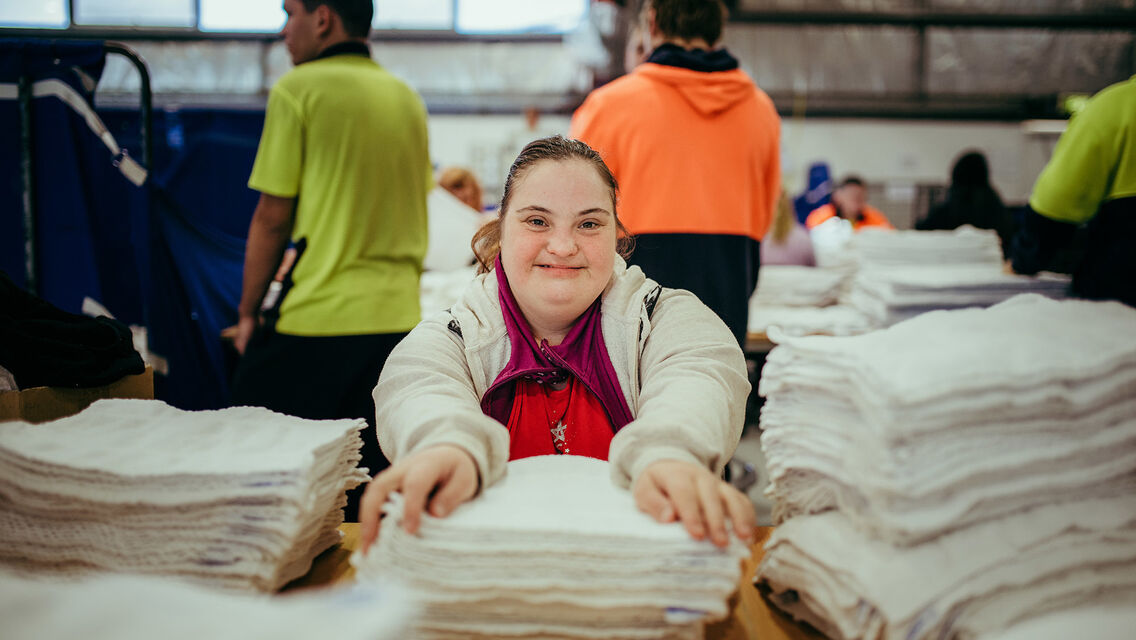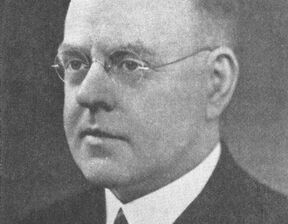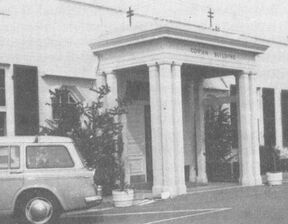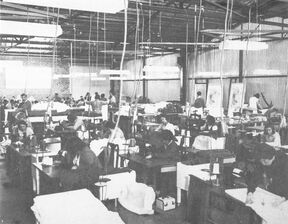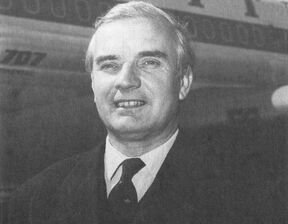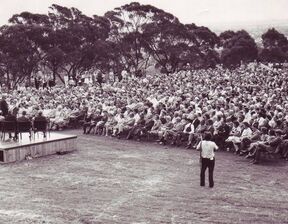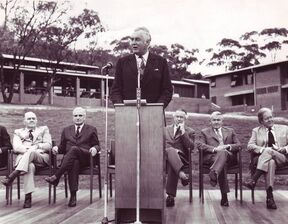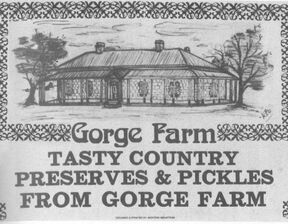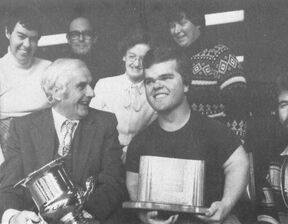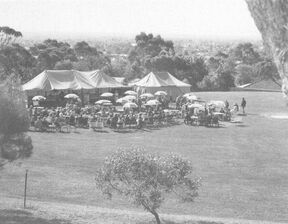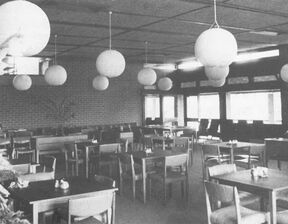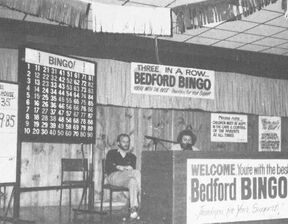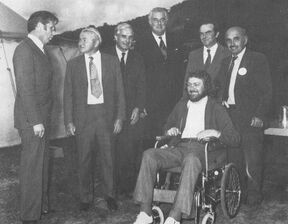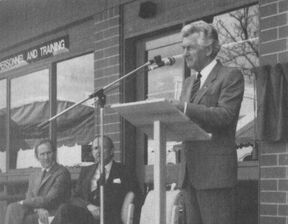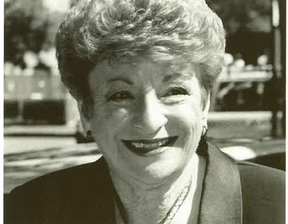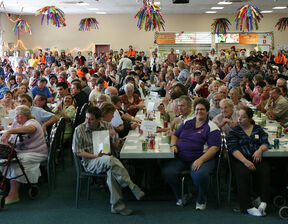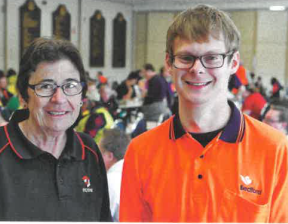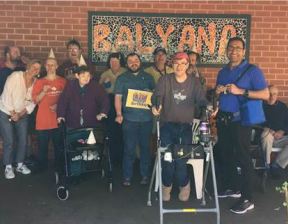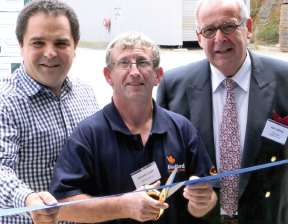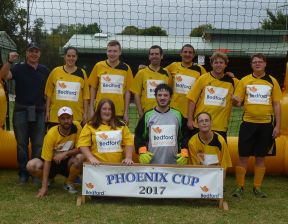From its humble beginnings in the 1940s, as a small workshop assisting in the rehabilitation of people affected by tuberculosis, to today’s delivery of supports to encourage people living with disabilities to make their own decisions, and exercise personal choice about how and where they live and work, Bedford's mission has remained the same.
Today, as South Australia’s largest employer of people with disability, spread across 18 metropolitan and regional sites, Bedford employ over 400 staff and supports more than 1300 people with disability, by offering a diverse range of employment opportunities in four core areas: Hospitality, Packaging, Manufacturing and Landscaping and Garden Maintenance.
Bedford also provides centre-based programs designed to meet personal goals and needs to build social skills, confidence, self-esteem and independence through our Day Options programs. In addition, we support individuals to learn new skills to help them meet their life goals, promote independence and build life skills through our Experiences (previously named 'Community Access and Lifestyle') programs.
As residents of our residential facility Balyana, approximately 60 people with disability have the privacy to navigate their own life choices in a safe, community-focused space where they are supported to run their own home and live as independently as possible, while staying connected with the wider community.
From the beginning...

The Civilian Tubercular and Cancer Comforts Fund (the ‘Fund’) was founded in South Australia.
The Civilian Tubercular and Cancer Comforts Fund (the ‘Fund’) was founded in South Australia.
The initial aim of the Fund was to bring relief to tuberculosis sufferers and provide practical assistance to patients and their families.
The Fund was incorporated in 1935.
The Collection for Charitable Purposes Act was passed.
The Collection for Charitable Purposes Act was passed.
As the Civilian Tubercular and Cancer Comforts Fund depended entirely upon voluntary help and relied largely upon funding from collections on ‘Badge Days’, it could only provide limited assistance until granted a licence to appeal (fundraising) to the public in 1943.
The Civilian Tubercular and Cancer Comforts Fund was renamed as the South Australian Tuberculosis Association Incorporated (SATAI).
The Civilian Tubercular and Cancer Comforts Fund was renamed as the South Australian Tuberculosis Association Incorporated (SATAI).
The Association’s Medical Director, Sir Darcy Rivers Warren Cowan, an Honorary Physician to the Adelaide Hospital, became involved in the problem of tuberculosis, its prevention, rehabilitation and cure. Sir Darcy was the driving force behind the formation of SATAI and a profound influencer on the work undertaken by SATAI and, soon, Bedford for many years.
SATAI identified the need for an ‘Industrial Colony’ where convalescent tuberculosis patients, who were fit to work, could find remunerated employment under conditions safe for themselves and their fellow workers.
The ultimate goal of SATAI was the restoration of men and, later, women to good health, returning to ‘outside employment’ and regaining their independence.
The ideal conditions at the Industrial Colony resulted almost immediately in some improvements. However, after a time it was realised that a number of workers would never gain the physical capacity for outside employment in the future. These men became the first ‘permanent’ Bedford employees.
On 12 April 1945, the South Australian Tuberculosis Association Incorporated registered the name ‘Bedford Industries’ and with that, Bedford was born.
On 12 April 1945, the South Australian Tuberculosis Association Incorporated registered the name ‘Bedford Industries’ and with that, Bedford was born.
The Commonwealth Government provided funding to each state to establish a vocational rehabilitation centre for tuberculosis sufferers.
With £200 working capital, Bedford Industries established its first timber workshop, a very modest ‘sheltered workshop’ in Glenelg.
Its employees were former tuberculosis patients discharged from institutions in advanced stages of recovery. Working conditions were adjusted to ensure employees had the psychological advantages of steady employment without the strain encountered in ‘outside employment’.
The workshop was intended as a rehabilitation centre and not designed to be a profit-making venture.
In its first 15 months, Bedford Industries produced a total of 23,357 articles, including bathmats, playpens, washing boards, and folding hospital tables.
The facilities at Glenelg were no longer able to meet demand and the South Australian Tuberculosis Association Incorporated launched a state-wide appeal to raise funds to expand.
The facilities at Glenelg were no longer able to meet demand and the South Australian Tuberculosis Association Incorporated launched a state-wide appeal to raise funds to expand.
A major fundraising program raised £26,000 and, with a £20,000 Government subsidy, a seven-acre site at Panorama was acquired.
In 1949, the foundation stone for an administrative and workshop building was laid by the Governor of South Australia, Sir Willoughby Norrie, with Sir Willoughby becoming the first Patron of Bedford Industries.

The expansion plan came to fruition and His Excellency the Governor, Sir Willoughby Norrie, officially opened Bedford Industries’ new domestic woodwork factory at Springbank (Panorama).
The expansion plan came to fruition and His Excellency the Governor, Sir Willoughby Norrie, officially opened Bedford Industries’ new domestic woodwork factory at Springbank (Panorama).
It was named ‘Cowan Building’ in honour of Sir Darcy Rivers Warren Cowan, and bears the Cross of Lorraine, the official symbol of the ongoing world-wide fight against tuberculosis, above the entrance.
This significantly larger modern factory accommodated 50 people, giving patients who could not return to full-time industry an opportunity to carry-out light work as Bedford employees. Bedford remains on that site today.
Women Tuberculosis sufferers are offered remunerative work for the first time with six electric sewing machines donated by G & R Wills & Co Ltd.
By 1954, there were 100 employees in the various woodworking areas of Bedford, with 26 employees graduating to full-time employment.
By 1954, there were 100 employees in the various woodworking areas of Bedford, with 26 employees graduating to full-time employment.
At the time, one of the employees spoke of the difficulties that had existed previously for people who had recovered from tuberculosis, with employers hesitating to employ them – Bedford gave the ex-patient a start, and in many cases, acted as an introduction to outside employment.
One employee commented that “without this job, I would be an invalid with nothing to do.”

Kenneth T Jenkins joined Bedford in 1960 and under his guidance over the next 20 years, Bedford underwent significant growth.
Kenneth T Jenkins joined Bedford in 1960 and under his guidance over the next 20 years, Bedford underwent significant growth.
Mr Jenkins was the driving force behind the transformation of Bedford into an internationally-recognised centre for the training and rehabilitation of people with disabilities.
The 1960s were a decade of great change.
The 1960s were a decade of great change.
Tuberculosis had largely been controlled in Australia and Bedford broadened its offering to a wider range of people, including those with medical, physical, mental and social disabilities. This took the number of employees to 250.
Expansion continued with new departments...
Expansion continued with new departments...
Including:
- Bookbinding
- Boot and Shoe Repair, providing a 24-hour service
- Textile Department, in which sheets, pillowcases and uniforms were manufactured
- Engineering shop –the ‘Roy Carter Wing’
- Assembly and Packaging area
- Training in food preparation and presentation.
In addition, the Woodwork section added wardrobes, garden furniture and sink cupboards to their list of products.
Packaging of foodstuffs commenced with cartons of biscuits for Arnott Motteram Menz.
Packaging of foodstuffs commenced with cartons of biscuits for Arnott Motteram Menz.
Sponsored by General Motors Holden, the first Awards Day was held to celebrate the achievements of staff and clients.
Sponsored by General Motors Holden, the first Awards Day was held to celebrate the achievements of staff and clients.
The South Australian Tuberculosis Association Incorporated changed its name to Bedford Industries Vocational Rehabilitation Association Incorporated, becoming the first Vocational Rehabilitation Centre in Australia.
January 1970 saw an Engineering Department established at Panorama, through the acquisition of the activities of Gamma Precision Engineering.
January 1970 saw an Engineering Department established at Panorama, through the acquisition of the activities of Gamma Precision Engineering.
A decade of growth from 1961 – 1971, sales increased from $50,000 to $656,00 and the number of employees increased from 23 to 510.
A decade of growth from 1961 – 1971, sales increased from $50,000 to $656,00 and the number of employees increased from 23 to 510.
Bedford Industries had ten departments:
- Bookbinding
- Contract
- Stationery
- Manufacture
- Paint Shop
- Food Packaging
- Engineering
- Electronics
- Woodwork
- Textiles

Described by a world authority as “the best of its type in the world” Balyana, Bedford’s residential and rehabilitation facility at Clapham, was officially opened by Australia’s Prime Minister, Gough Whitlam.
Described by a world authority as “the best of its type in the world” Balyana, Bedford’s residential and rehabilitation facility at Clapham, was officially opened by Australia’s Prime Minister, Gough Whitlam.
Facilities at Balyana provided 60 people with disability with the opportunity to live independently in a supported environment.

In March 1975 Bedford purchased Gorge Farm at Normanville (a 180 acre property), and the adjoining Kelly Farm, to provide the opportunity for employees to work in horticultural and agricultural activities in a rural environment.
In March 1975 Bedford purchased Gorge Farm at Normanville (a 180 acre property), and the adjoining Kelly Farm, to provide the opportunity for employees to work in horticultural and agricultural activities in a rural environment.
The Central Hotel at Victor Harbor was also purchased to be used as dormitory accommodation for Bedford’s Normanville farm employees.
Located at Edwardstown, ‘Katuni’ was established as a Training Centre/Activity Therapy Centre for adults with intellectual disability.
Located at Edwardstown, ‘Katuni’ was established as a Training Centre/Activity Therapy Centre for adults with intellectual disability.

After more than 20 years of leadership, Mr Kenneth T Jenkins retires.
After more than 20 years of leadership, Mr Kenneth T Jenkins retires.
His comments to employees and staff upon his retirement “Thank you for what you are, for what you have been, and for what you will become”.

Thousands of visitors attend Bedford’s first Open Day.
Thousands of visitors attend Bedford’s first Open Day.
Bedford Industries won the prestigious Industrial Design of Australia Award, with a dining room setting from its ‘Design Plus’ range.
A fundraising initiative that introduced the broader community to Bedford and the brainchild of volunteer Lee Page, Bedford Bingo kicked-off. Bingo would run until 2019.

The Prime Minister of Australia, the Right Honourable R J L Hawke MP, officially opened the new KT Jenkins Rehabilitation Centre.
The Prime Minister of Australia, the Right Honourable R J L Hawke MP, officially opened the new KT Jenkins Rehabilitation Centre.
The building was named to honour the man under whose direction Bedford Industries had developed from a comparatively small ‘sheltered workshop’ catering to tuberculosis patients or rehabilitees to become a very large, very diverse training and manufacturing centre.
The KT Jenkins Rehabilitation Centre was a training centre equipped with all facilities needed to carry out programs to develop vocational, recreational, educational and community living skills.
The Bedford Foundation was formed to undertake major fundraising projects.
The Bedford Foundation was formed to undertake major fundraising projects.
Chaired by Malcolm Kinnaird AC, the Bedford Foundation achieved its goal of raising $1M in donations over five years for capital projects.
The most successful year to date, 69 employees achieved ‘outside’ employment, now known as ‘open employment’.
The most successful year to date, 69 employees achieved ‘outside’ employment, now known as ‘open employment’.
1992 Bedford continued to evolve and adapt to changing demands – providing training across a multitude of areas for 470 people with disabilities.
1992 Bedford continued to evolve and adapt to changing demands – providing training across a multitude of areas for 470 people with disabilities.
Bedford Industries Rehabilitation Association shortened its name to become Bedford Industries Incorporated.
Bedford Industries Rehabilitation Association shortened its name to become Bedford Industries Incorporated.
January 2000 saw the acquisition of A J Manufacturing (renamed Bedford Plastics and sold in 2003), a producer of custom-made plastic packaging.
January 2000 saw the acquisition of A J Manufacturing (renamed Bedford Plastics and sold in 2003), a producer of custom-made plastic packaging.
The beginning of a remarkably successful long-term partnership, Bedford Furniture was awarded a national contract with Bunnings to supply ready-to-assemble furniture. This furniture can still be found in Bunnings today.
The beginning of a remarkably successful long-term partnership, Bedford Furniture was awarded a national contract with Bunnings to supply ready-to-assemble furniture. This furniture can still be found in Bunnings today.
On 7 March 2003 the inaugural ‘Friends of Bedford’ Big BBQ was held at Balyana with 300 guests attending. The Big BBQ continues today as an annual event.
On 7 March 2003 the inaugural ‘Friends of Bedford’ Big BBQ was held at Balyana with 300 guests attending. The Big BBQ continues today as an annual event.

Bedford Patron and Governor of South Australia, Her Excellency Marjorie Jackson-Nelson AC, CVO, MBE hosted a reception at Government House to celebrate Bedford’s 60-year anniversary.
Bedford Patron and Governor of South Australia, Her Excellency Marjorie Jackson-Nelson AC, CVO, MBE hosted a reception at Government House to celebrate Bedford’s 60-year anniversary.
Her Excellency said "you only have to spend some time at Bedford to understand that it is a place of hope, optimism and sense of purpose. These are not feelings that are captured in every workplace and certainly give Bedford is own special place in our community.”
Bedford merged with two service providers - CareerSystems and Living Skills Incorporated.
Bedford merged with two service providers - CareerSystems and Living Skills Incorporated.
In July 2007, Bedford merged with CareerSystems, a provider of services to bring increased opportunity, training and employment or community participation to people living with disability.
To expand its presence and offerings in South Australian regional areas, in September 2007 Bedford merged with Living Skills Incorporated, a disability service supporting 100 people in the Port Pirie, Wallaroo and Kadina areas, including Day Options, supported employment, open employment and personal support programmes.
Bedford also welcomed a visit from Prime Minister John Howard.
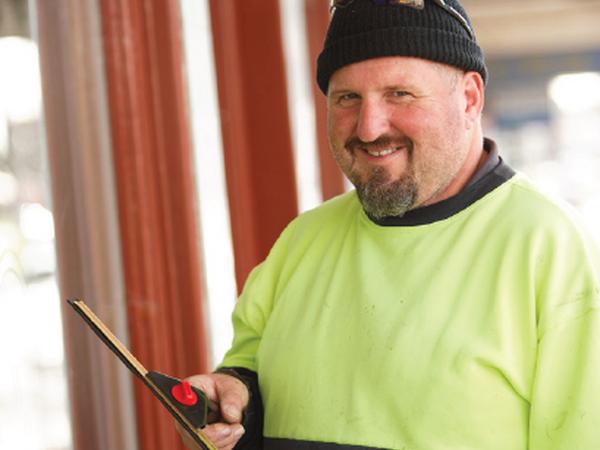
A number of mergers in 2008 supported the growth of services in regional South Australia.
A number of mergers in 2008 supported the growth of services in regional South Australia.
Bedford merged with a Mount Gambier cleaning and ground maintenance services provider, Gambier Contracts, in February 2008.
With Port Lincoln-based Compass Contracting Services (Compass Egg Farm) in April 2008.
And with disability services provider Millicent Work Option Centre in November 2008.

Over 1,600 people attended the annual Awards Day at the Adelaide Convention Centre.
Over 1,600 people attended the annual Awards Day at the Adelaide Convention Centre.
For the first time events were also held at Wallaroo, Mount Gambier and Port Lincoln.
A new Wallaroo Day Options Centre opens in November 2010.
A new Wallaroo Day Options Centre opens in November 2010.
Bedford merged with Heritage in Mount Gambier, known for its production of pine pallets, wooden wine boxes and contract timber moulding, to broaden its services and provide opportunities for more people with disability in the South East.
Bedford Industries Incorporated changed its name to Bedford Group Incorporated.
Bedford Industries Incorporated changed its name to Bedford Group Incorporated.
Bedford opened a packing facility at Silverwater in New South Wales.
Bedford opened a packing facility at Silverwater in New South Wales.
This new facility had the capacity to employ 30 people living with disability.
Bedford started exporting ready-to-assemble furniture to Bunnings New Zealand.

In December 2014, Bedford Group Incorporated and Phoenix Society Incorporated amalgamated to form Bedford Phoenix Incorporated, making it the second-largest Australian Disability Enterprise.
In December 2014, Bedford Group Incorporated and Phoenix Society Incorporated amalgamated to form Bedford Phoenix Incorporated, making it the second-largest Australian Disability Enterprise.

Bedford announced a partnership with Unity Housing, a not-for-profit South Australian organisation specialising in housing for people on low incomes, to manage its residential properties.
Bedford announced a partnership with Unity Housing, a not-for-profit South Australian organisation specialising in housing for people on low incomes, to manage its residential properties.
Adelaide Property and Garden (APG) won Master Landscapers Association of South Australia Award for Construction of Commercial Landscape over $500,000.
Launched in 2016, Bedford’s Orange Brick Road program offered internships of tailored training, mentoring and supported pathways into participants chosen careers. In its inaugural year, 115 people with disability graduated and transitioned into jobs of their choice.

January saw the launch of the $1M upgrade to Bedford’s Mount Gambier facility.
January saw the launch of the $1M upgrade to Bedford’s Mount Gambier facility.
The National Disability Insurance Scheme (NDIS) rollout in SA begins.
Bedford commenced its Community Access and Lifestyle, School Leaver Employment Services, Client Engagement, Support Coordination and Plan Management Services.
Bedford merged with Oriel Services Limited (HiCity) in Victoria, which provided employment for 100 people with disability and supported living housing in group homes.

Bedford’s Soccer Tournament with teams competing for the Phoenix Cup celebrated its 10th anniversary.
Bedford’s Soccer Tournament with teams competing for the Phoenix Cup celebrated its 10th anniversary.
Following a decision to re-focus on its South Australian heartland, commercial operations in NSW and Victoria ceased.
Following a decision to re-focus on its South Australian heartland, commercial operations in NSW and Victoria ceased.

Bedford launches a $50m Masterplan to enhance disability skills and services across South Australia.
Bedford launches a $50m Masterplan to enhance disability skills and services across South Australia.
The five-year investment will offer people with disability the chance to pursue new pathways and training programs at new sites in open employment and earn award wages, if they choose to do so.
To support this transition, and in a first for disability employment in Australia, Bedford will create its own open employment market called Bedford Social Enterprises. This will provide opportunities and skilled jobs for people of all ability – including those seeking to transition from a supported model to open employment.

A year of firsts for Bedford as our $50m Masterplan commences.
A year of firsts for Bedford as our $50m Masterplan commences.

The Bedford of today (and the future) provides a wide range of services and support to people living with disability to allow them to exercise choice and control over their lives.
The Bedford of today (and the future) provides a wide range of services and support to people living with disability to allow them to exercise choice and control over their lives.
Bedford employ 452 staff across 18 South Australian metropolitan and regional sites to provide services to 1300 clients, including employment of most of those clients.
In 12 months Bedford can achieve:
- 48,447 hours of service in Community Access and Lifestyle programs provided
- 52,204 ready-to-assemble wardrobes/pantries sold
- 24,816 garden beds manufactured in Port Pirie and sold in Bunnings stores
- 3.25m packs of crackers packed
- 120,000 Police Personal Protection Packs packed – we continued to operate through COVID-19
- 1.5m guacamole dip packs packed
- 2m irrigation kits assembled
- 3m pasta packs relabelled and repacked
- 400,000 wine bottles delabelled
- 760,000 pieces of kindling bagged in Mount Gambier
- 604,800 picket fences produced in Mount Gambier (that’s 424km of fencing)

